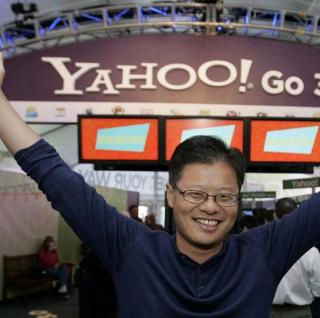
介绍:
SCOTT SIMON, HOST: Alibaba, the Chinese e-commerce company, made history yesterdaywith the largest U.S. IPO ever. Shares climbed 38 percent on the first day oftrading. Now, one company is riding nicely along with Alibaba - Yahoo. A decadeago, Yahoo quietly made a billion-dollar bet on Alibaba. And that wager'sturned into a windfall of at least $8 billion. One of the best moves in Yahoo'sup-and-down history. NPR's Aarti Shahani has the story.
AARTI SHAHANI, BYLINE: It was August 2005 - August 11 to be exact. And to those who arewatching, Yahoo's move didn't seem so masterful.
WARREN MCFARLAN: At that moment, when you first looked at it, it was, wow, I wonderif Yahoo knows what it's doing.
SHAHANI: F. Warren McFarlanis a professor at the Harvard Business School.
MCFARLAN: And the answer is,they knew partly what they were doing, and there were other pieces of it thatthey just didn't understand.
SHAHANI: McFarlan, who haswritten about Chinese tech companies for decades, found it curious when thefounder of Yahoo - a fellow American named Jerry Yang- came to town. Yang wasin search of a native Chinese company to help Yahoo build its web searchingbusiness there; someone to deliver contacts and customers and deal with thegovernment. Yang was not betting on the success of that native company when hehanded over a check for $1 billion.
MCFARLAN:It wasn't so clearhow he was going to get the return out of it.
SHAHANI: Internet companiesare in essence, information companies. And McFarlan says the Chinese governmentwas heavy-handed about controlling information. So it wasn't clear thatstartups could prosper. But he doesn't want to overstate how much attention thedeal got.
MCFARLAN: In the big picturearound the world, it was a much more of a yawn.
SHAHANI: Or a subplot. Themuch bigger story was another American giant - eBay - trying to stomp outAlibaba, the scrappy Chinese startup. Many assumed it would be an easy knockoutfor eBay. But it wasn't. And Yahoo became a pawn(兵) in that fight as business reporters, like CNBC's Maria Bartiromo,told the story.
(SOUNDBITE OF ARCHIVED RECORDING)
MARIA BARTIROMO: Ebay, obviously, has been trying to really build and be asuccessful company in China. I guess with the Yahoo backing, this is reallyrepresenting a big challenge for eBay in China.
SHAHANI: Alibaba did win -decisively snagging millions of Chinese consumers into its online auction site. And now Yahoogets to cash in. The company based in Sunnyvale,California, is selling aboutone quarter of its shares and getting billions of dollars back in return. Yahoowouldn't tell NPR exactly how it plans to spend all that money, whether it'llgive it out in payments to investors or buy many more startups. But for ColinGillis, an analyst with BGC Partners, one thing is clear.
COLIN GILLIS: It's not their hard work that generated this return. It's Alibaba'ssuccess that generated this return.
SHAHANI: There also may be adownside for Yahoo. For years, U.S. investors couldn't buy a single share ofAlibaba directly, so they had to invest in Yahoo as a proxy. Now with Alibabaon the New York Stock Exchange, investors could dump their Yahoo stock. Gillissums up the question on Wall Street.
GILLIS: Why would I want tobuy the proxy now that I can buy the real thing?
SHAHANI: No matter how you sizeup the long-term prospects, Yahoo right now gets a lot of cash on hand. WhileSilicon Valley companies - from Google to Microsoft to Cisco - have a longhistory of investing in other startups, the sheer size of the payoff fromYahoo's bet is unique. As Cisco chief strategy officer, Padma Warrior, putsit...
PADMASREE WARRIOR: It is not common that every investment, you know, goes in the tensof billions of dollars.
SHAHANI: Her company and othersare crisscrossing the world in search of their Alibabas. And Warrior says inthe last decade, the conventional wisdom about why you invest abroad haschanged.
WARRIOR: It's no longer thecase that you can double up a product for U.S. or Europe and then take featuresof it and, you know, innovate them - the product - to take into an emergingmarket. I think that's turned out to be a myth.
SHAHANI:The new wisdom, andcertainly a lesson gleaned from Yahoo's foray into China, is that nativecompanies know what their people want and how to deliver it. And Silicon Valleycan tag along for the ride. Aarti Shahani, NPRNews,San Francisco.
大家还在听

